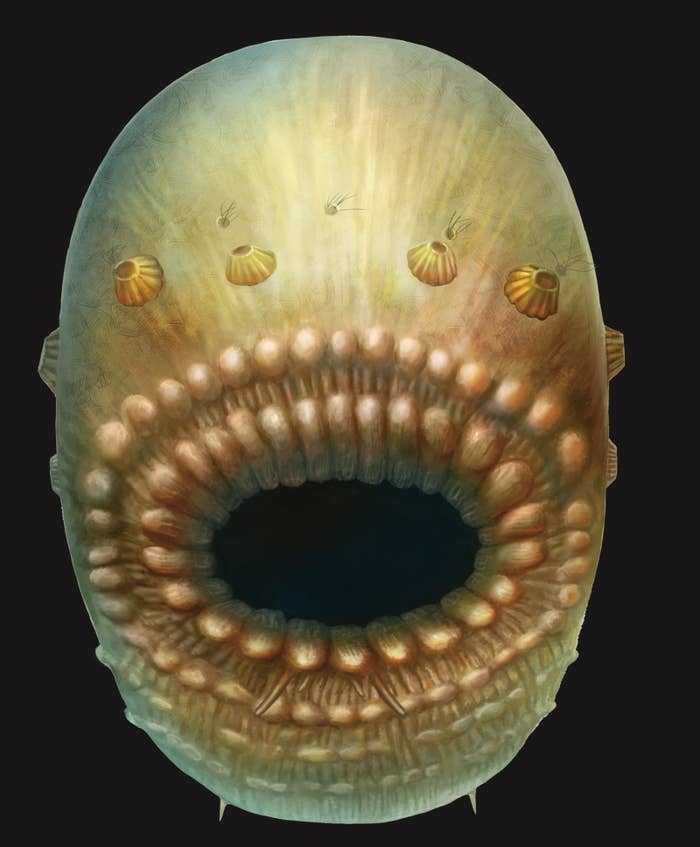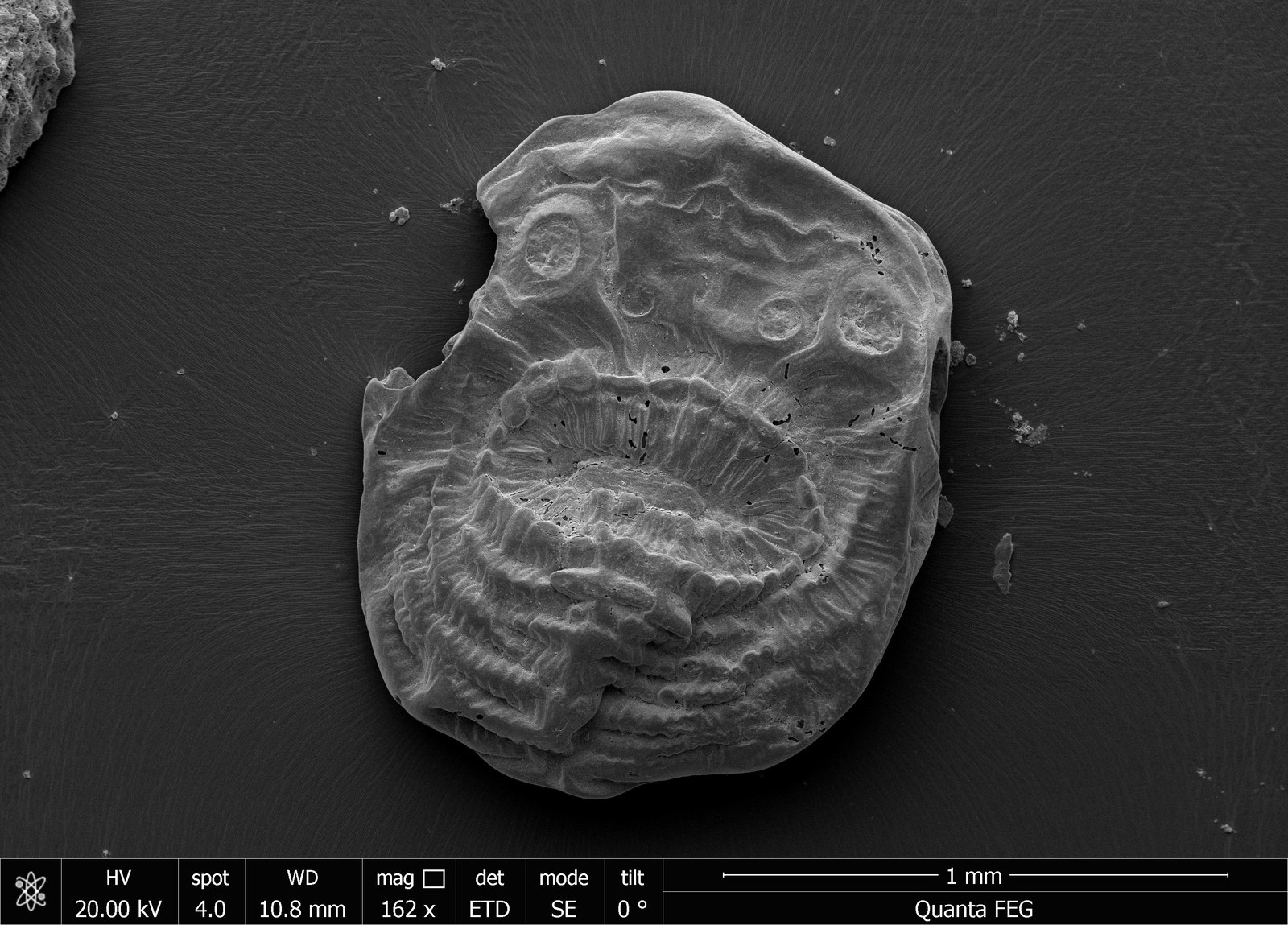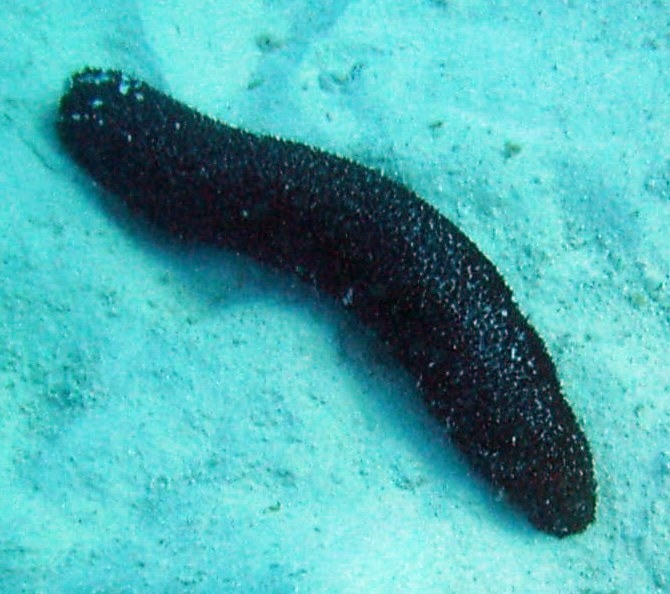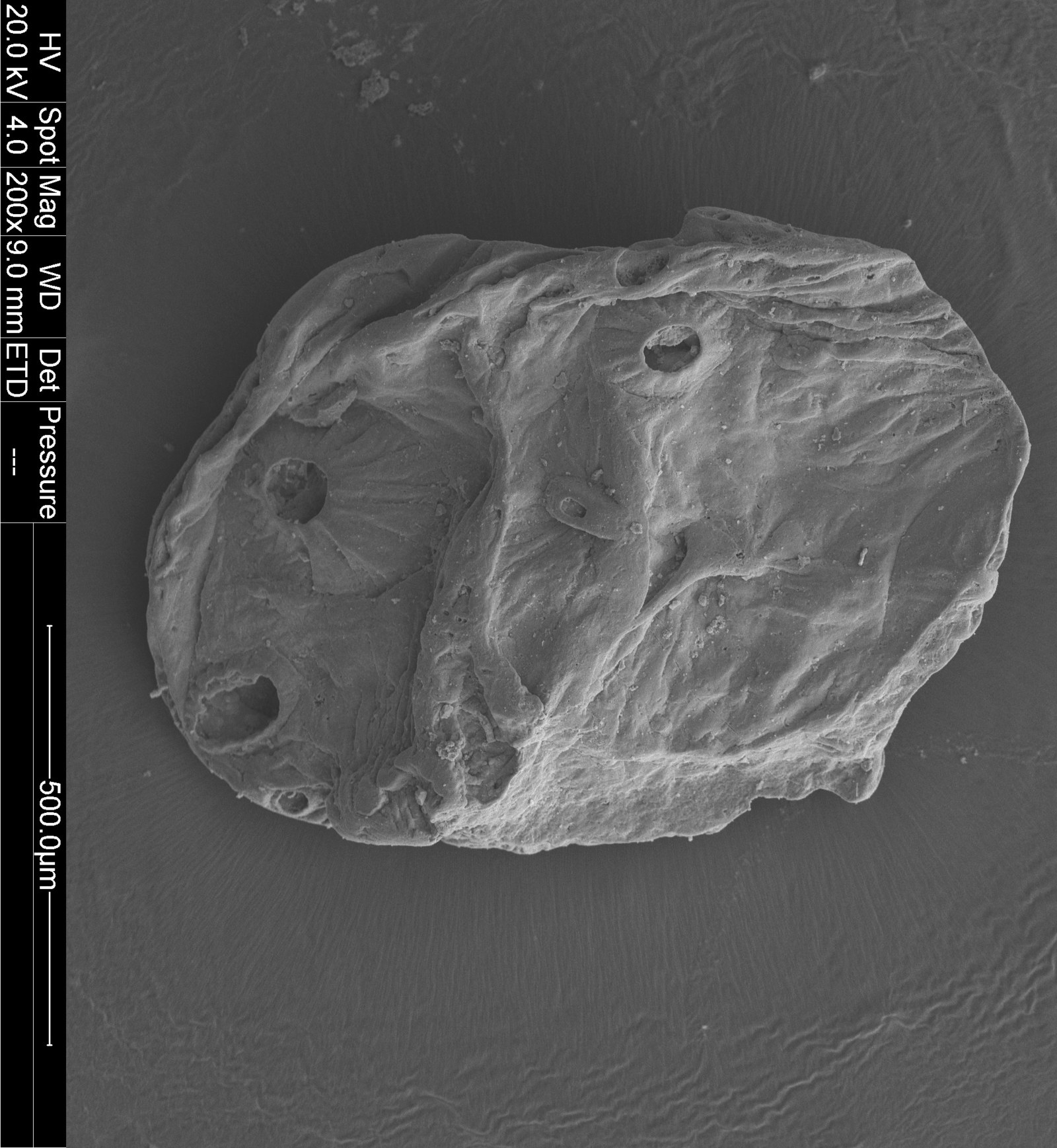This weird-looking beast is probably your oldest known ancestor, according to a new study.

The study was carried out by researchers from Northwest University in China and Cambridge University, and is published in Nature.
It's called Saccorhytus coronarius. It's 540 million years old, about a millimetre long, and was found in rocks in Shaanxi, northwest China.

Here's the fossil itself, under a scanning electron microscope. It probably lived in the sand of the seabed, eating tiny particles of organic matter and perhaps small creatures.
Saccorhytus means "wrinkled sack", because it's essentially a bag – a bag with, apparently, only one major opening.
The scientists who found it think it is an early "deuterostome". Deuterostomes are the group that includes all creatures with backbones – vertebrates – as well as various worms, starfish, sea cucumbers, and so on.

This is a sea cucumber. The ancient deuterostome is (probably) its several-million-times-great grandparent as well. Say hi to your cousin.
"What’s crucial is the openings on the side of the body, called body cones," Simon Conway Morris, a professor of palaeontology at Cambridge who worked on the study, told BuzzFeed News. The researchers think the cones expelled the water that the little creature took in when it ate its prey. "That's an absolute hallmark of the deuterostomes," said Conway Morris. "It's the smoking gun."
In later generations of creatures, these body cones evolved into gill slits, like those seen on fish. "These gill slits, to all intents and purposes, do not appear in any other group," said Conway Morris. "All science is provisional, but if this is correct it seems to be a good line of evidence."
If they're right, it's the oldest deuterostome ever found – and so it's the oldest human ancestor known.

Conway Morris's colleagues sorted through three tonnes of rock, slowly dissolving it in weak acid, and found 45 Saccorhytus specimens. "It's a very small animal, but the preservation is amazing," he said. "Even for a grizzled old palaeontologist like me, under an electron microscope, it's eye-popping stuff."
And interestingly, it doesn't appear to have an anus.
It may be that the fossils' anuses simply weren't properly preserved, but it seems that they really didn't have one – which isn't completely unheard of. "By and large, an anus is a useful thing to have," said Conway Morris. "But in this context it’s not 100% surprising.
"There's another group of worms, called the acoels, which molecular evidence suggests is linked to the deuterosomes, and they don't have an anus. Gut, mouth, but no anus. They're the most primitive of the more advanced species – so not sponges and the like, things like sea anemones – and one line of argument is there's an acoel–deuterosome connection."
Instead, any waste material was probably expelled back out of the mouth, which Conway Morris acknowledges may sound "unappealing".
The no-anus lifestyle exists elsewhere in the animal kingdom. Demodex mites, a kind of parasite most humans have on their faces, also have no anuses – they don't expel waste at all, and instead just eventually explode and die – but their ancestors used to; they evolved to lose them.
So your great-great-great-etc-grandparent was probably a wrinkled sack with no bum.
Which is information you can use however you want to.
